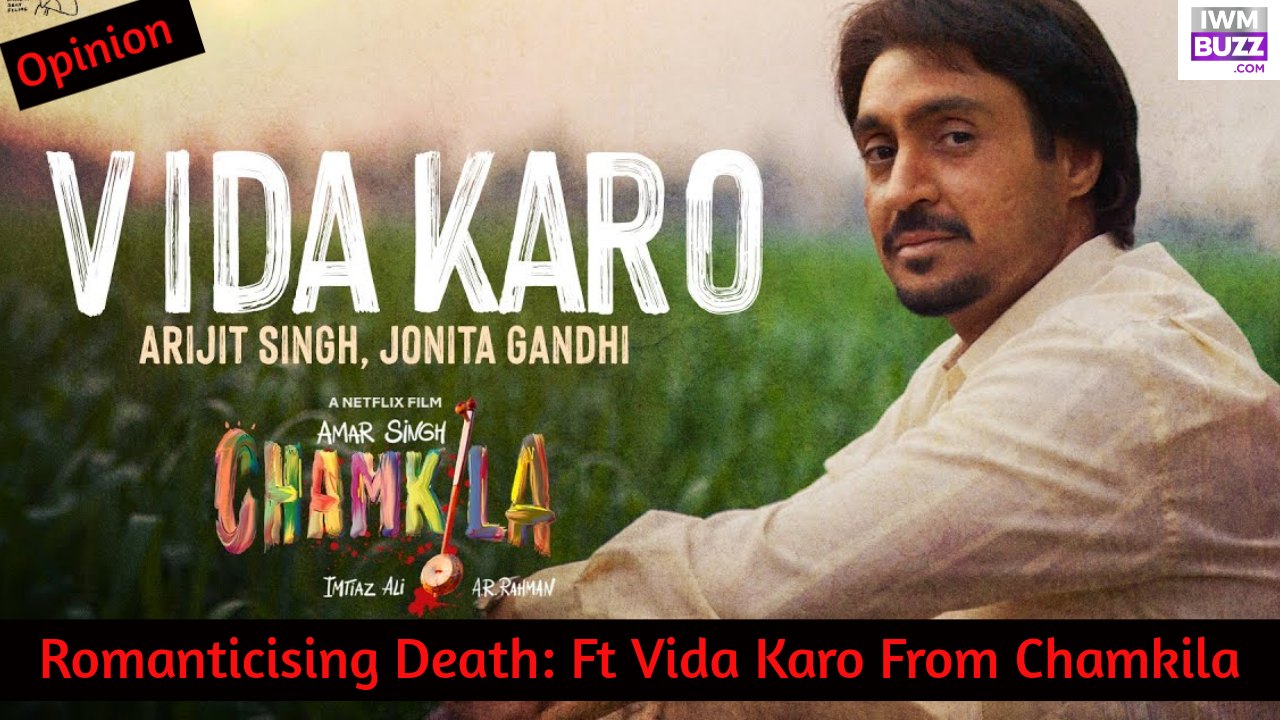“Dying is a troublesome business: there is pain to be suffered, and it wrings one’s heart; but death is a splendid thing -a warfare accomplished, a beginning all over again, a triumph. You can always see that in their faces.” – George Bernard Shaw
The ‘birthing’ is celebrated. The ‘life’ is celebrated. But why not ‘death?’
Death remains one of the biggest events that happens to life. The gloom and glory of it are what we fear, but the escapism is what leads us to pain.
For aeons ‘Death’ has been celebrated in literature.
For the unversed, the ‘Romantic Movement’ that bloomed in the 19th century has its roots in the 18th Century poetry, which included the pre-Romantic ‘graveyard’ poets from the 1740s. We read about ‘skulls’ ‘epitaphs’ and ‘worms.’ And in modern days, Goth culture is one of a kind. We now have metalheads. (I am one.)
Now if you give this a read or listen, you see how the growls have pain, anger but also have deeper inward meaning. While we apparently perceive it as ‘screaming.’ Metal music has a bigger purpose.
Music in its pure sense works as your refuge from misery. As Albert Schweitzer says, “There are two means of refuge from the miseries of life: music and cats.”
Coming to core literature, if you have been a Bronte fan, I would like to mention some of her creations that have largely bothered the readers. Charlotte Brontë’s, Jane Eyre (1847), and Elizabeth Gaskell’s Ruth (1853) and North and South (1855). Arguably, these pieces romanticise death, more specifically, the deaths caused by tuberculosis. By romanticizing the disease, the characters in these novels glorify tuberculosis, portraying it as something beautiful rather than horrific. They also use it as a means to beautify the notion of God taking their loved ones prematurely.
What is felt is that the characters who succumb to tuberculosis are depicted as virtuous and beautiful individuals, and that their religious faith significantly influences their fate in succumbing to the illness. It was common in the 19th century.
And then how Sara Teasdale’s poetry romanticises ‘suicide.’
But if you ask, if one should be ‘bothered’ by the romanticisation of ‘death.’ The answer is ‘no’ (this is a perception.) If you celebrate ‘life’ why not ‘death?’ Death is more inevitable than life is! It could be that ‘life’ might not happen, but ‘death’ my friend, shall occur.
Why the discussion?
The song ‘Vida Karo’ (From Chamkila on Netflix) has taken the youth so in trance, that they almost are likely to summon ‘death’ for they find it more beautiful that what ‘life’ is. And the feeling here might seem concerning to you, but ‘death’ comes in momentum. The feeling comes in momentum.
When Genz is ‘reeling’ under pressure of constant validation, Vida Karo gnaws into your aching senses, meandering through your veins, soaking each bit of you with emotion of perturbed peace, like stone thrown to water, ripples of pain and pleasure.
In an era of chewing gum songs, Vida Karo is a nectar to your ears. After a hectic day of push & pull, Vida Karo balms your thoughts, putting you to rest, one beat at a time.
The song evokes strong emotions: a comment read,” when I die, I want them to play this song,”, another terms it as the ‘funeral song of the year’, while a jittered lover wrote, :”aise gaane bhi mat banao ke mar jane ka mann kare,”.
Kudos to Rahman, Irshad Kamil and the magical voices of Arijit Singh and Jonita Gandhi, Vida Karo is a true classic, set to enchant music lovers for years and years to come. Take a bow, Imtiaz Ali.
As they say, we are bothered, because we are attached. We care about our possessions. We try to chain down when it’s time to bid adieu.
Vida Karo teaches you ‘impermanence.’ And the youth who are getting into a trance, summoning their death, or commenting ‘found song for my funeral’ are humble to know that they aren’t here forever!
(With inputs from Siddhartha Laik)

